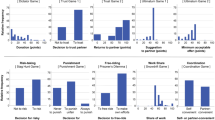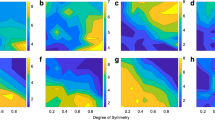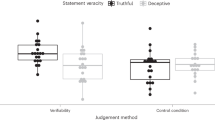Abstract
DICE have been used as a game of chance from time immemorial and have in all ages been associated with gambling for high stakes. Loaded dice or dice adjusted to increase the probability of a particular face or one of a group of faces turning up have been used by swindlers from very early times, and such methods of destroying symmetry as unsymmetrical weighting and slight alteration of form are well known. Even in the case of normal dice, the method of numbering the sides may cause a slight departure from perfect symmetry, and there may be justification for the alleged belief of professional gamblers that there is a slight tendency for the higher numbers 4, 5 and 6 to turn up more often than 1, 2 and 3.
This is a preview of subscription content, access via your institution
Access options
Subscribe to this journal
Receive 51 print issues and online access
$199.00 per year
only $3.90 per issue
Buy this article
- Purchase on Springer Link
- Instant access to full article PDF
Prices may be subject to local taxes which are calculated during checkout
Similar content being viewed by others
Author information
Authors and Affiliations
Rights and permissions
About this article
Cite this article
WORLEY, F. Loaded Dice. Nature 144, 712–713 (1939). https://doi.org/10.1038/144712b0
Issue Date:
DOI: https://doi.org/10.1038/144712b0
Comments
By submitting a comment you agree to abide by our Terms and Community Guidelines. If you find something abusive or that does not comply with our terms or guidelines please flag it as inappropriate.



